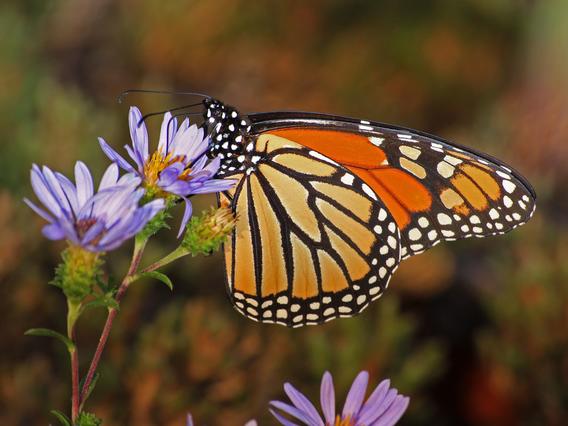
The population of monarch butterflies in North America has dramatically declined over the last 25 years, with much of that decline driven by factors related to climate change. A Midwest Climate Adaptation Center-funded project led by Michigan State University’s Elise Zipkin is investigating these past population changes and forecasting future changes in order to inform conservation efforts.
The project team’s findings, recently published in Global Change Biology, use decades of data and climate models to forecast which counties in the region are most likely to offer the most hospitable breeding grounds for monarch butterflies in the face of climate change. This information can allow resource managers to focus conservation efforts in key areas where they can have the greatest potential impact.
How do researchers get this information to those who need it most? In MSU Today, Zipkin acknowledged the value of working with the MW CASC: “We’re answering scientific questions that we think are important, but we are also working with on-the-ground individuals and agencies that can use our work to implement strategic conservation. The Midwest Climate Adaptation Science Center helps us get our research directly into the hands of those people who are thinking about next steps.”
Read more about this project here.
